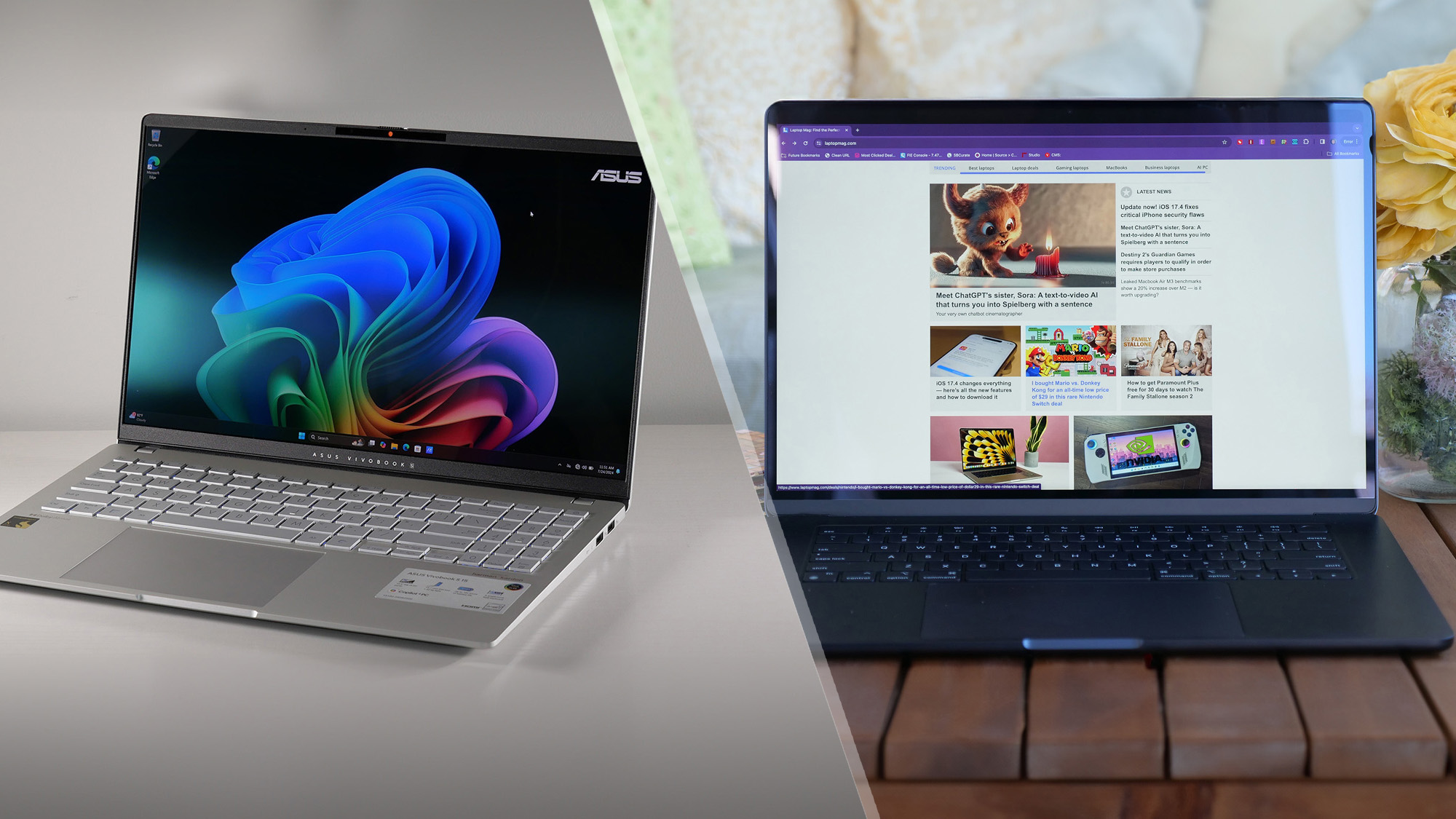
The war for ARM-based laptop dominance is here. After three years of Apple Silicon digging itself into position, Qualcomm's Snapdragon X Elite arrives as the not-so-secret weapon that Windows on ARM desperately needed to launch a full-scale attack on Apple's fortifications. The Asus Vivobook S15 joins the first Snapdragon X Elite laptops launched in June to meet the M2 and M3-powered MacBooks on the battlefield.
Ever since launching the first laptops, the Laptop Mag team has pitted them against their MacBook counterparts to see which would come out on top. Snapdragon X Elite laptops at the MacBooks to see which would come out on top. We've seen some close skirmishes with laptops from Lenovo and Dell beating the MacBook Air in multiple critical categories, but an overall victory still evades them.
Will the Vivobook S15 finally break through Apple's defenses and record the first win for a Qualcomm Snapdragon X Elite laptop?
Asus Vivobook S15 vs. MacBook Air 15 M3: Specs compared
Asus Vivobook S15 vs. MacBook Air 15 M3: Price
Asus might as well be synonymous with the word "value." The company offers a wide selection of laptops, some that land well under $1,000 and still provide premium qualities. How do you think a company like that will fare against Apple in this section? Let's break down the cost.
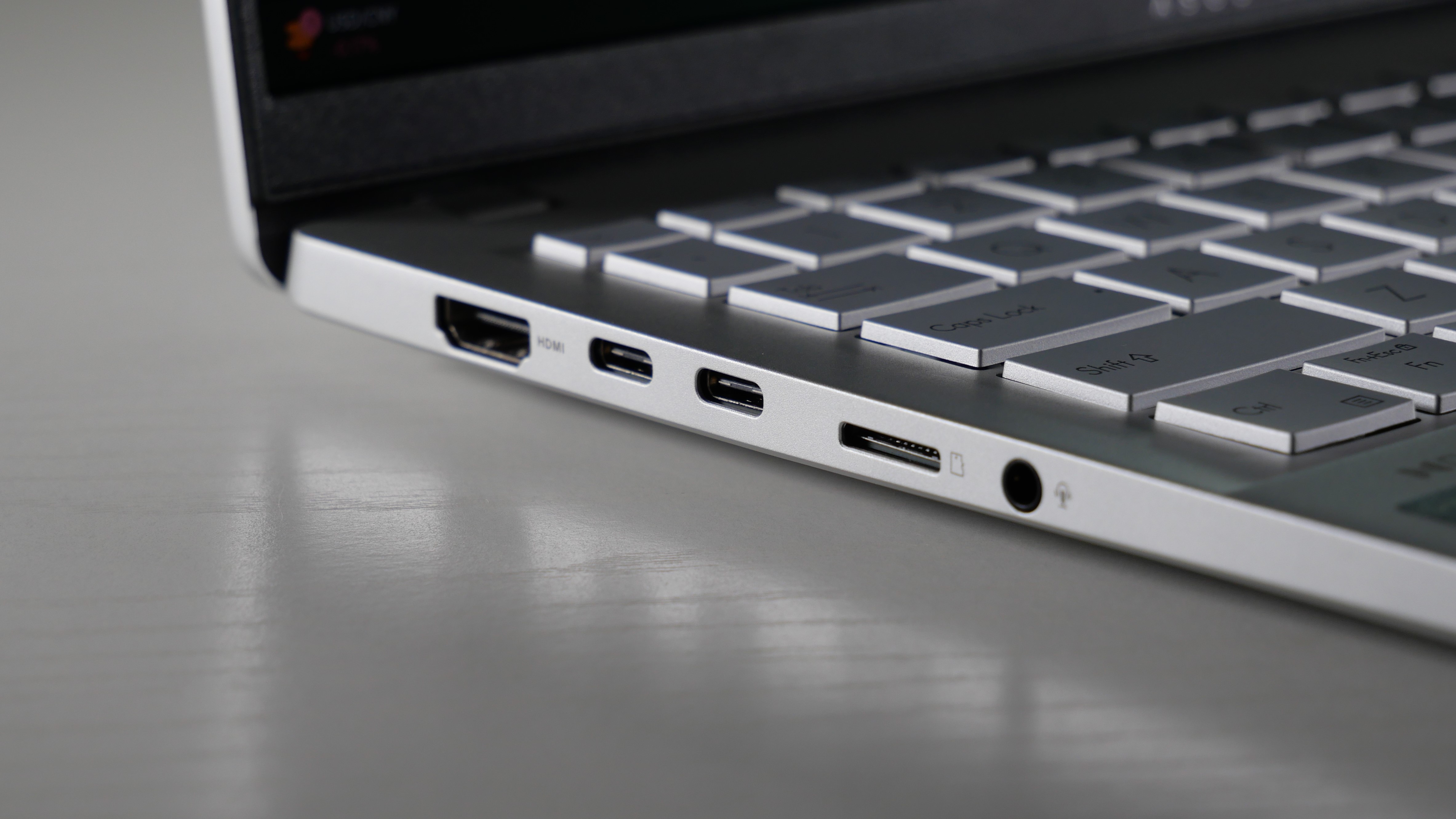
For $1,299, the Asus Vivobook S15 offers a Snapdragon X Elite X1E-78-100 CPU, 16GB of RAM, a 1TB SSD, and a 15.6-inch, 2880 x 1620, 120Hz OLED display.
For $1,699, the MacBook Air 15 features an M3 chip, 16GB of RAM, a 512GB SSD, and a 15.3-inch, 2880 x 1864, 60Hz display.
To match the specs more closely, you'll need to bump the MacBook to $1,899 to get that 1TB SSD. That's a big oof from me.
The MacBook Air 15 starts at $1,299 and drops you to 8GB of RAM and a 256GB SSD. Meanwhile, the Asus Vivobook S15 starts at $1,099 and drops to a Snapdragon X Plus X1P-64-100 CPU and 512GB SSD.
A lower starting price and more value per component quickly settles this battle.
Winner: Asus Vivobook S15
Asus Vivobook S15 vs. MacBook Air 15 M3: Design
Asus had a grand opportunity to showcase a unique look in an affordable premium laptop. However, the Asus Vivobook S15 looks closer to a MacBook, but Apple's is a MacBook.
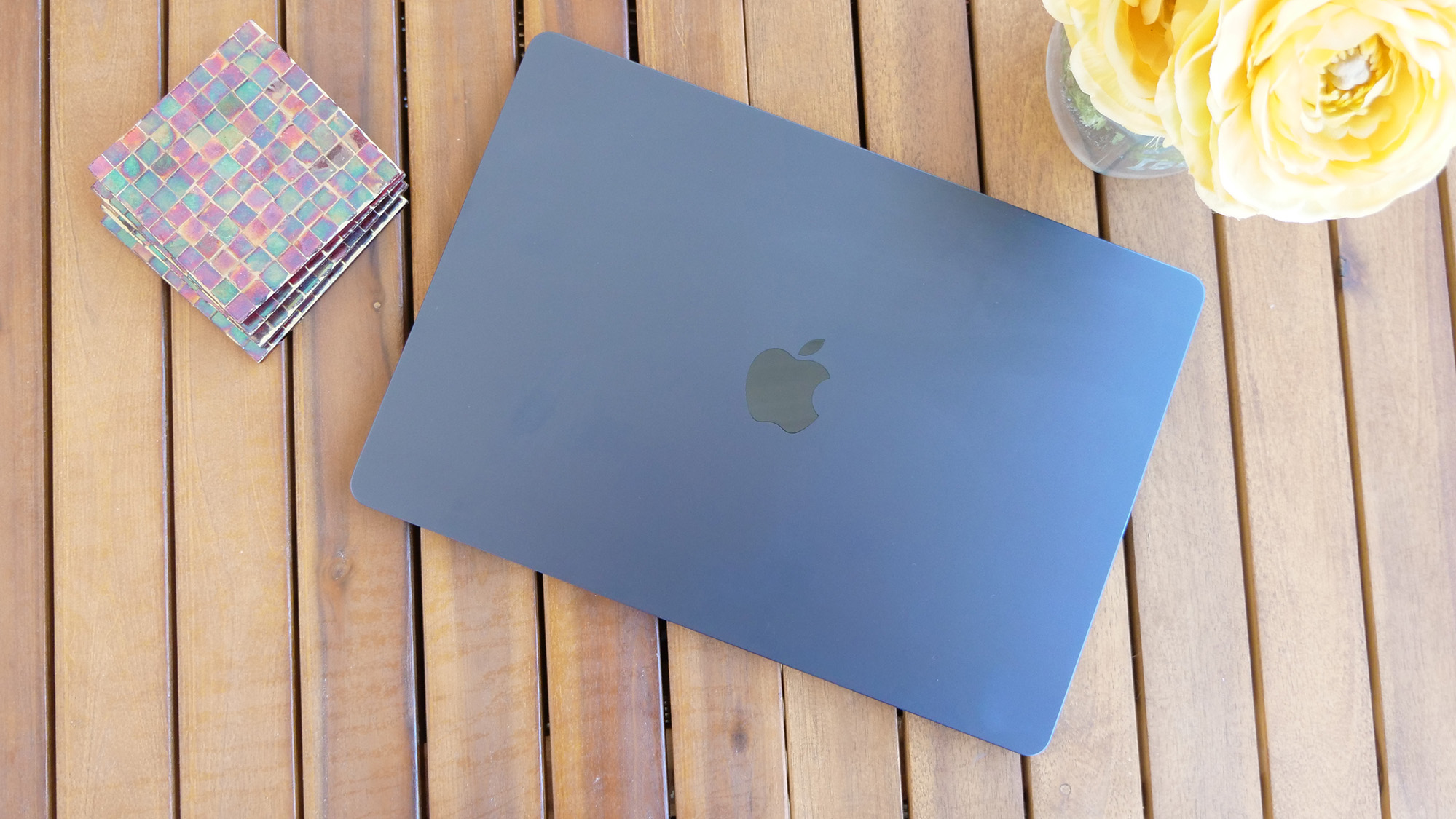
Don't get me wrong, the Asus Vivobook S15 features a sleek, premium chassis, but so does the MacBook Air. The big difference is the logo.
However, one major advantage that the MacBook offers is that it comes in different colors: black, silver, gray, and beige. The Vivobook comes in silver, and that's it.
But what about size? That one is interesting.
The Vivobook weighs 3.2 pounds and measures 13.88 x 8.93 x 0.58~0.63 inches, while the MacBook Air weighs 3.3 pounds and 13.4 x 9.35 x 0.45 inches. So, the Vivobook is lighter and smaller in depth. However, the MacBook Air is thinner and shorter in width.
I'm going with the MacBook Air. Let me explain. The weight difference is so insignificant that no average person could tell when holding them. Meanwhile, a thinner laptop can be nice, but it's not the thing that takes up the most space. That would be length and width.
In most cases, the longest part of a laptop needs to be shorter to fit in a bag. A laptop's length determines its portability in all situations and even dictates comfort on a lap.
Winner: MacBook Air 15
Asus Vivobook S15 vs. MacBook Air 15 M3: Display
This is a pretty tight race. The Asus Vivobook S15 features a 15.6-inch, 2880 x 1620, 120Hz OLED display, while the MacBook Air 15 is rocking a 15.3-inch, 2880 x 1864, 60Hz panel.

The Vivobook offers slightly more real estate and a higher refresh rate, while the MacBook Air features a slightly higher resolution. The only noticeable difference here is the refresh rate. But let's see how they did on benchmarks.
The Asus Vivobook S15 covered 82.8% of the DCI-P3 color gamut and averaged 370 nits of brightness, while the MacBook Air 15 covered 77.5% of the DCI-P3 color gamut and averaged 482 nits of brightness.
I do love more color in my displays. However, since both these laptops feature glossy panels, that difference in brightness gives the MacBook Air 15 a significant edge. You might not notice the difference in color, but the brightness will be more than evident.
Winner: MacBook Air 15
Asus Vivobook S15 vs. MacBook Air 15 M3: Performance
We've already seen the Snapdragon X Elite X1E-80-100 do quite a number on Apple's legendary M3 chip. But will the Asus Vivobook S15's lower-tier Snapdragon X Elite X1E-78-100 outpace the MacBook Air 15's M3?
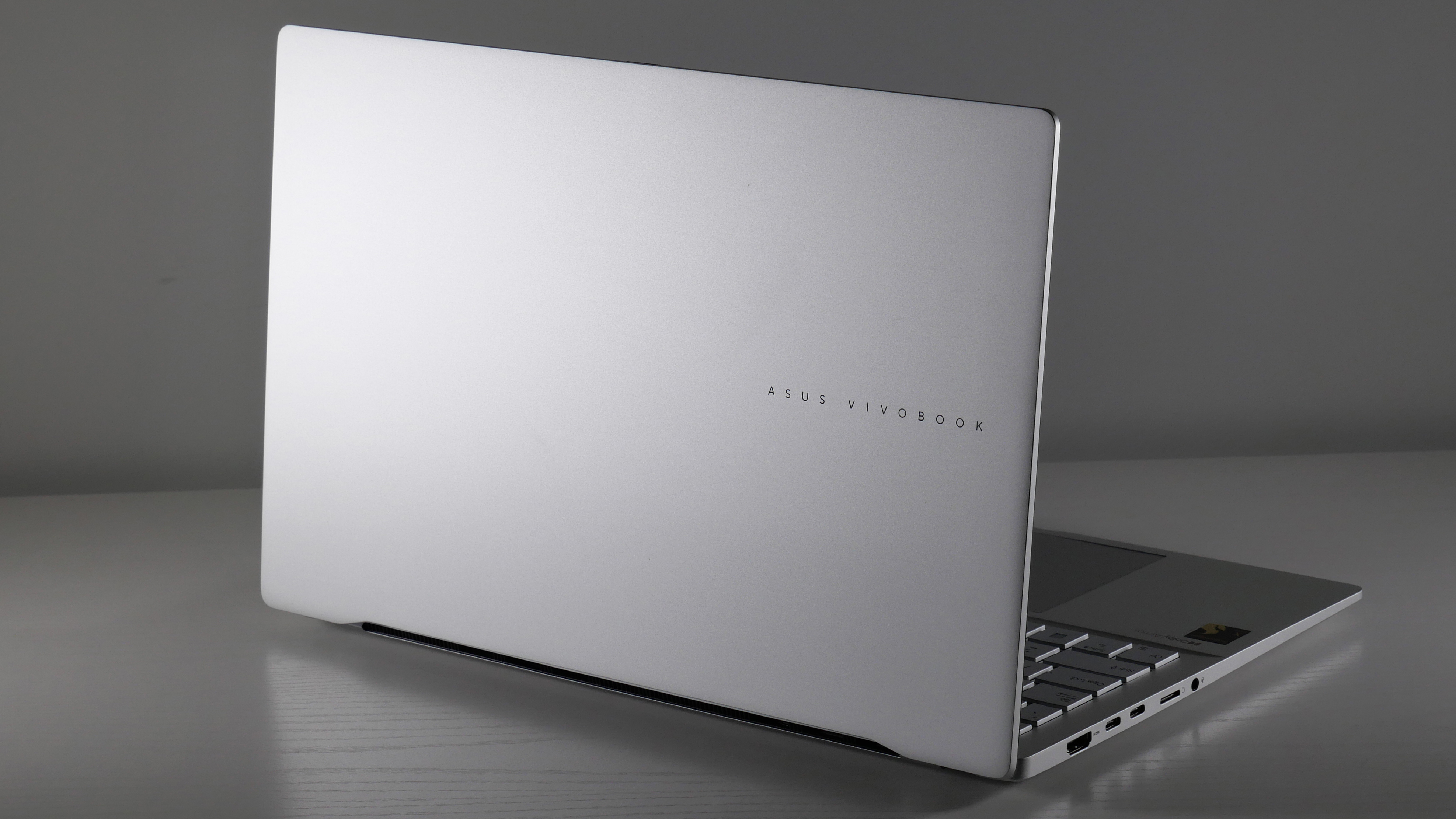
On the Geekbench 6.3 overall performance test, the Asus Vivobook S15 nailed 14,522, while the MacBook Air hit 12,052. Even with a lower-tier Snapdragon, it managed to create a wide gap.
In a real-world test, the Vivobook S15 transcoded a 4K video to 1080p in 4 minutes and 27 seconds on our HandBrake benchmark. The MacBook Air completed the task 2 minutes later, coming in at 6 minutes and 30 seconds.
The storage test is a little complicated since they both ran different tests. But on our test, which measures the transfer rate of 25GB of multimedia files, the Vivobook S15's 1TB SSD scored a transfer rate of 1,296 megabytes per second. On the BlackMagic Read/Write test, the MacBook Air's 512GB SSD scored 2,968.2/3,167.1 MBps.
Vivobook crushes it on overall performance. MacBooks typically feature lightning-fast SSDs, but the Vivobook's is still quick.
Winner: Asus Vivobook S15
Asus Vivobook S15 vs. MacBook Air 15 M3: Battery life
Two big chipsets with two big batteries. The race between the Asus Vivobook S15 and the MacBook Air 15 M3 is tighter than you might think. Which will come out on top?
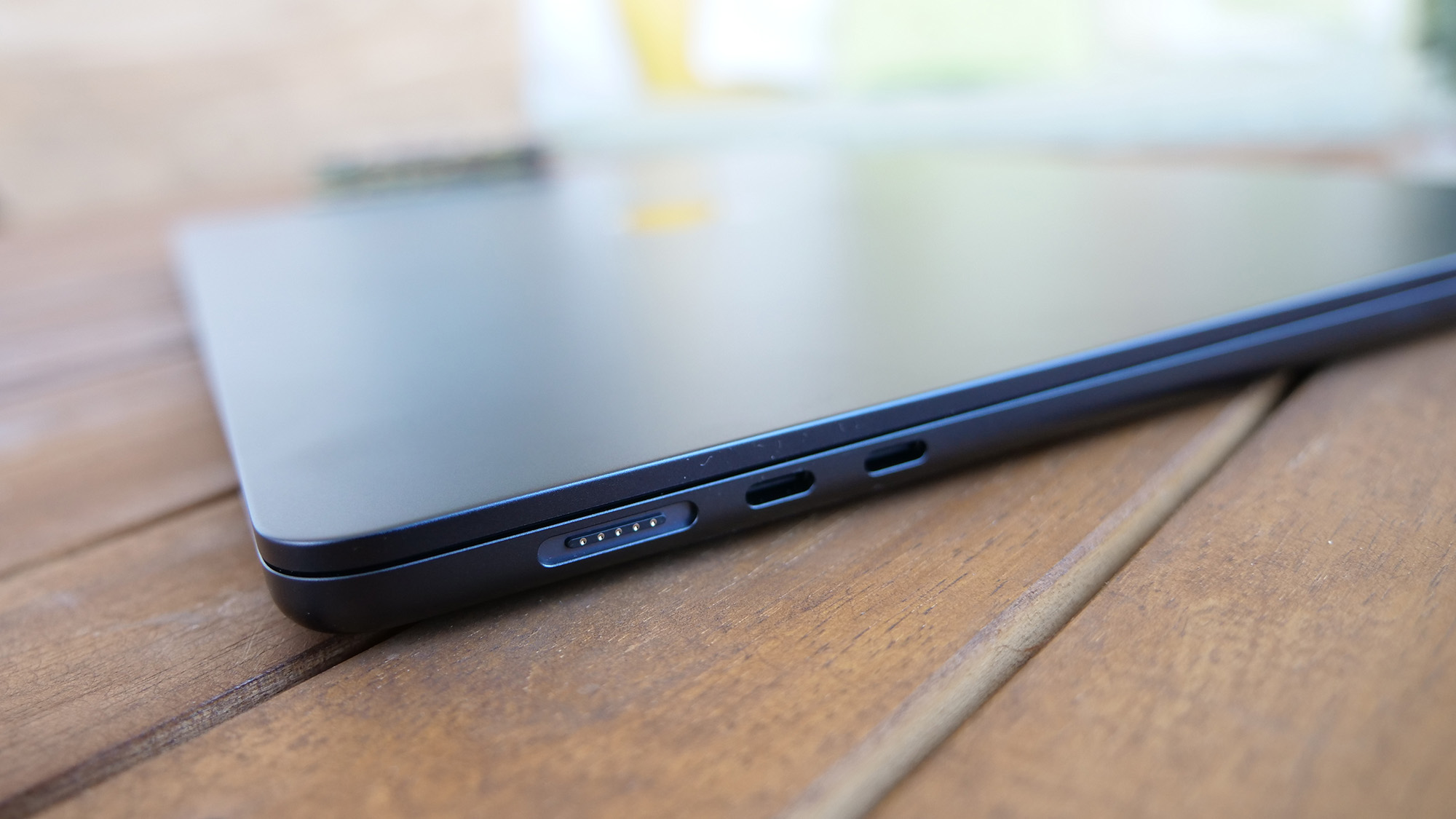
On the Laptop Mag battery test — which continuously surfs through webpages over Wi-Fi at 150 nits of brightness — the Vivobook S15 survived 12 hours and 53 minutes. Impressive, right? Well... The MacBook Air kept on going and didn't stop until it clocked in at 15 hours and 3 minutes.
Winner: MacBook Air 15
Overall winner: MacBook Air 15
The MacBook Air 15 wins, and let me tell you why it wasn't as tight of a race as you thought it was. Of course, the MacBook Air 15 offers a more colorful design, brighter display, and longer battery life, but it also features a glass touchpad. That's a massive upgrade compared to the plastic one that the Asus Vivobook S15 offers. After all, the touchpad is one of the two key ways to interact with a laptop.
Despite that, the Asus Vivobook S15 features incredible performance and qualities similar to those of the MacBook, all for a more affordable price.
Deciding which one you should get comes down to budget. The MacBook Air 15 is the better device overall, but if you want to save, the Asus Vivobook S15 is an easy choice.
Winner: MacBook Air 15







